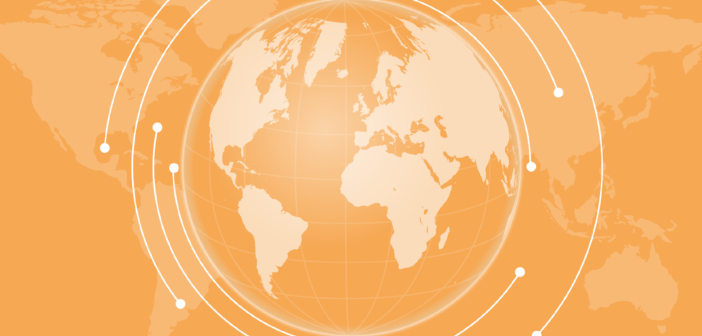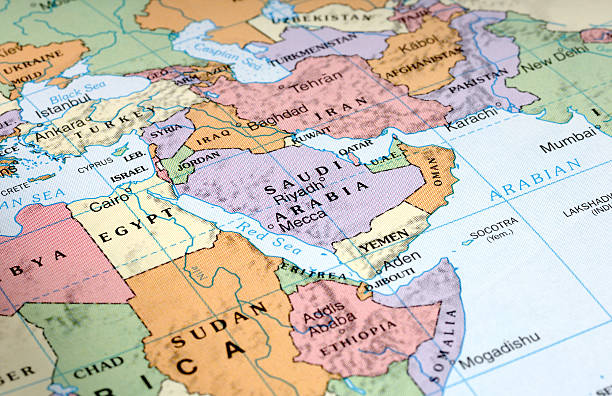Russia’s Indiscriminate Attack Spark Outrage
Ali Tuygan
On April 5, 2022, Foreign Minister Sergey Lavrov claimed that assertions of “war crimes” are a pretext to torpedo the ongoing negotiations at a time when some light, however dim, has appeared at the end of the tunnel. Then, elaborating on the talks held in Istanbul on March 29, 2022, he said:
“For the first time ever, the Ukrainian side has put on paper that it is prepared to declare Ukraine a neutral, non-aligned, and non-nuclear state, and to refuse to deploy weapons from foreign states on its territory or to conduct exercises on its territory with the participation of foreign military personnel, unless they are approved by all guarantors of the future treaty, including the Russian Federation. The security guarantees envisaged by the treaty are a step toward everyone realizing that the negotiations need to completely rule out NATO’s eastward expansion, primarily to Ukraine, and to ensure indivisible security in Europe.”
He called the reports about what took place in Bucha a provocation to divert attention from the negotiation process. He added that the Russian side is ready to keep negotiating in good faith but does not want a repeat of the Minsk agreements.[i] But the next day, Mr. Lavrov said that Kyiv presented a draft agreement on April 6 which marks a departure from the provisions that were recorded at the meeting in Istanbul. It may well be that for the Ukrainian side at least, “nothing is agreed until everything is agreed”.
The pictures of devastated cities and towns, and the latest Russian attack on a train station in the eastern city of Kramatorsk where at least 50 people were killed, only confirm that Russian attacks are indiscriminate and have swept President Putin’s theory of Russian and Ukrainian being one people into the ash heap of history. A day before last week’s NATO Foreign Ministers meeting, Secretary General Stoltenberg warned that the war could stretch on for years. There are references to a “protracted-war”. Mr. Putin calls the invasion of Ukraine a “special operation” but clearly this is a war, and although Kyiv’s calls for a no-fly zone have been resisted and no NATO troops are in Ukraine, this is now also a de facto war between Russia and NATO.
Some experts think that gaining control of the Donbas would effectively partition off a piece of Eastern Ukraine and President Putin could sell it to the Russians as a victory. But depending on his assessment of Western resolve, he may go for more or less. Others say indignation is a legitimate response to Putin’s atrocities in Ukraine, but it is not a policy. There are references to a potential “sanctions fatigue”.[ii] Indeed, with rising energy and food prices, this could soon turn into “sanctions frustration” for developing nations. The International Crisis Group suggested in a recent commentary that too often, sanctions fail because of a reluctance to lift restrictions unless maximalist demands are met. In this light, it is important to build consensus within Europe – and with other NATO allies – around what conditions would lead to the lifting of some of the sanctions intended to choke Russia’s economy.[iii]
So, with many unknowns, it is difficult to say that Foreign Minister Lavrov’s above-mentioned remarks were the groundwork for a shift towards peace because it appears that the bloodiest phase of the invasion, the upcoming battle for Donbas is just ahead.
Last Thursday was a busy day in Brussels. The G7 Foreign Ministers and the High Representative of the European Union met and once again condemned Russia for its invasion of Ukraine. They expressed their readiness to assist further, including with military equipment and financial means, to allow Ukraine to defend itself against Russia’s aggression and to rebuild Ukraine. They said:
“A humanitarian push including more funding is urgently needed for Ukraine and beyond as Russia’s ruthless war and actions are having massive consequences on global commodity and food prices. The resulting rise in food insecurity is being felt disproportionately by the most vulnerable. We stand in solidarity with our partners across the world who have to bear the rising price of President Putin’s unilateral choice to wage war in Europe. We will make coherent use of all instruments and funding mechanisms to address food insecurity, keep markets open, and build resilience in the agriculture sector on all continents. We will actively counter Russia’s narrative that Western sanctions have caused the rise in global food prices and call it out for what it is: a blatant lie.”
The G7 can rest assured that the “most vulnerable” would be watching like they have been watching the West’s discriminatory approach towards different refugee groups.
In Brussels, NATO Foreign Ministers were joined by Georgia, Finland, Sweden, the EU, and for the first time by NATO’s Asia-Pacific partners Australia, Japan, New Zealand, and the Republic of Korea.
After the meetings, Secretary General Stoltenberg held a press conference. He started off by underlining the allies’ strong condemnation of the horrific murders of civilians in Bucha and other places recently liberated from Russian control. He said that the Ministers agreed to further strengthen and sustain support to Ukraine and to step up cooperation with partners in the Asia-Pacific because the crisis has global ramifications.
He said:
“We have seen that China is unwilling to condemn Russia’s aggression. And Beijing has joined Moscow in questioning the right of nations to choose their own path. This is a serious challenge to us all. And it makes it even more important that we stand together to protect our values.
“NATO and our Asia-Pacific partners have now agreed to step up our practical and political cooperation in several areas including cyber, new technology, and countering disinformation.
“We will also work more closely together in other areas such as maritime security, climate change, and resilience.”
Also last Thursday, the UN General Assembly decided to suspend Russia from the UN Human Rights Council. 93 members voted in favor while 24 were against and 58 abstained. China voted against the Resolution. The next day Chinese Foreign Ministry Spokesman said, “It is like adding fuel to the fire, which is not conducive to the de-escalation of conflicts, and even less so to advancing the peace talks… China calls on all parties to work together in the same direction, so as to create opportunities for peace and prospects for negotiation.”
After his meetings in Brussels Secretary Blinken also held a press conference.[iv] He was notably asked:
“Second question is Ukraine’s Foreign Minister Kuleba said today that as long as the West continues buying Russian gas or oil, it is supporting the Russian war machine. That’s a direct quote. Are you pressing Europeans to commit to a timeline – a more aggressive timeline for banning Russian oil and gas?”
This was his response:
“On the energy situation, so we’ve seen over many years a dependence buildup in Europe on Russian gas especially as well as on Russian oil… And my strong sense is that Europeans are very much committed, as I said, to ending that dependence. But it’s also not like flipping a light switch. You have to do it methodically. You have to put in place the necessary alternatives…”
Hopefully, that does not mean that European nations would take time to methodically adjust to the impact of sanctions, and once they are ready, they would ask others to flip the switch because this would only lead to resentment toward Europe.
Another question was the following:
“And one on diplomacy: In the lead-up to the war, Foreign Minister Sergey Lavrov either lied to you or didn’t know what he was talking about. Can you deal with him in the future? And the connected question: Today, as European capitals are evicting Russian officials, will the U.S. follow?”
And this was Mr. Blinken’s response:
“With regard to diplomacy, look, there are diplomats from various countries that one deals with in the course of doing your job who occasionally have or more than occasionally have an adversarial relationship with the truth. That’s part of the job.”
Speaking of diplomats, Foreign Minister Lavrov is an experienced diplomat. For ten years he was Permanent Representative of the Russian Federation to the UN. He has been at the helm of the Russian diplomacy for eighteen years. But he too must have been surprised by Western unity on Russia sanctions, military support to Ukraine, and Germany’s commitment to dramatically raise its defense spending.
During an interview on January 13, he said that once Washington’s and NATO’s written responses to Russia’s treaty proposals were received, he and Defense Minister Sergey Shoigu would report to President Putin because they were acting on his direct instructions, “this is his initiative.”[v] Surely, both Ministers were acting under the instructions of President Putin. The opposite is unthinkable in Russia. Nonetheless, Mr. Lavrov’s underlining that this was Mr. Putin’s initiative has attracted my attention. Perhaps someday I would understand better why he was so specific.
Last week, the Turkey-US Strategic Mechanism was launched in Ankara. Two days later, the State Department said in a letter to Congress that the sale of F-16 fighter jets to Turkey would be in line with US national security interests and also serve NATO’s long-term unity.
On March 21, the EU’s “Strategic Compass” was approved. What it said on Eastern Mediterranean drew a sharp rebuke from the Turkish Ministry of Foreign Affairs. It seems that Ankara is now trying to restore its relations with the West but the EU remains cool to Ankara’s openings. Because initiatives on the diplomatic front cannot bring a dramatic change to our relations with the EU. For more, the key remains the restoration of our democracy.
Since the downing of a Russian fighter aircraft, the murder of Ambassador Karlov, and the purchase of Russian S-400 air defense systems, Ankara has been walking a fine line between Russia and the West. Some call it a “balancing act”. With the war in Ukraine and the new Cold War, this may now prove an even bigger challenge.
—————————————————————————————————–
[i] https://mid.ru/en/foreign_policy/news/1808149/
[ii] https://carnegieeurope.eu/strategiceurope/86722?utm_source=rssemail&utm_medium=email&mkt_tok=MDk1LVBQVi04MTMAAAGDoqzL7EQHBeLFudyZYjJ4i-7O23RSXWgcHT5P2MMpMTVafqTwINin4S32b0lTE8N45LDxEsUUIjexgMOxBPJJlxWe0ldbOUe-jgtsRmvLgDyB
[iii] https://www.crisisgroup.org/europe-central-asia/eastern-europe/ukraine/war-ukraine-raises-new-questions-eu-foreign-policy
[iv] https://www.state.gov/secretary-antony-j-blinken-press-availability-at-the-meeting-of-nato-foreign-ministers/










